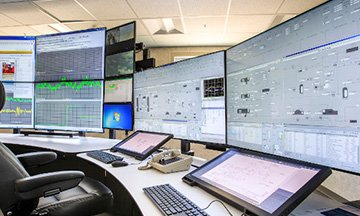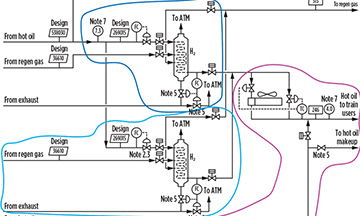SCADA Training Course
| Date | Venue | Duration | Fees | |
|---|---|---|---|---|
| 22 Apr - 26 Apr, 2024 | Dubai | 5 Days | $4750 | Register |
| 05 May - 09 May, 2024 | Doha | 5 Days | $4950 | Register |
| 06 May - 10 May, 2024 | Dubai | 5 Days | $4750 | Register |
| 09 Jun - 27 Jun, 2024 | Riyadh | 15 Days | $13500 | Register |
| 24 Jun - 28 Jun, 2024 | Dubai | 5 Days | $4750 | Register |
| 22 Jul - 26 Jul, 2024 | Dubai | 5 Days | $4750 | Register |
| 05 Aug - 09 Aug, 2024 | Dubai | 5 Days | $4750 | Register |
| 26 Aug - 30 Aug, 2024 | Istanbul | 5 Days | $5695 | Register |
| 02 Sep - 06 Sep, 2024 | Dubai | 5 Days | $4750 | Register |
| 18 Sep - 20 Sep, 2024 | Mumbai | 3 Days | $4250 | Register |
| 07 Oct - 11 Oct, 2024 | Geneva | 5 Days | $5695 | Register |
| 14 Oct - 18 Oct, 2024 | Dubai | 5 Days | $4750 | Register |
| 04 Nov - 08 Nov, 2024 | Dubai | 5 Days | $4750 | Register |
| 08 Dec - 19 Dec, 2024 | Doha | 10 Days | $9150 | Register |
| 09 Dec - 13 Dec, 2024 | Dubai | 5 Days | $4750 | Register |
Course Overview
What is SCADA and how does it work? SCADA is used across the world to control all types of industrial processes — SCADA can help you increase efficiency, lower costs and increase the profitability of your operations. SCADA is not a specific and explicit technology, but a form of application.
SCADA stands for Supervisory Control and Data Acquisition. In fact, several SCADA applications use PLCs as the RTU of choice, when communicating with field devices. This all-inclusive course covers the essentials of SCADA and PLC systems, which are frequently used in close association with each other.
This course is designed to help the participants with practical up-to-date information on the application of PLC’s and SCADA to the automation and process control of plants and factories. It is suitable for individuals who have little or no experience with PLC and SCADA but expect to become involved in some or all aspects of PLC installation and SCADA Programming.
It aims to provide practical advice from subject matter experts in the field, to assist you to correctly plan, programme and install a PLC with a shorter learning curve and more confidence. While this course is perfect and ideal for engineers who are new to PLCs and SCADA, much of the contents and additional material in the extensive manual will be of value to those who already have the basic skills but need a wider perspective for larger and more challenging tasks ahead. The information covered in this course advances from the basics to challenge and test even the most experienced engineer in the industry today.
A range of real-world case studies is used to illustrate the main concepts with examples of real-world working PLC and SCADA systems in the water, electrical and processing industries and this course will be an excellent chance to network and link with your peers as well as gain significant new information and methods for your next SCADA project.
Although the prominence of the course will be on practical industry topics highlighting recent developments using case studies and the latest application of PLC and SCADA technologies, the fundamentals of PLC and SCADA systems will be covered.
The course is intended for those who want to be updated on the recent developments in PLC and SCADA systems and desire to get a solid appreciation of the fundamentals and essentials of PLC, SCADA & Telemetry design, installation and troubleshooting.
This Zoe training course introduces Supervisory Control and Data Acquisition (SCADA) / Programmable Logic Controllers systems. Participants will discover how remote sensing and actuation are combined with modern communication techniques to effectively monitor and control very large industrial processes—like those used in oil fields, pipelines, and electrical power systems.
This course will explore major SCADA applications, SCADA system components, and architecture. The course defines and explains Programmable Logic Controller (PLC) and architecture, configuration, installation, maintenance, and programming.
Course Objectives
Upon completing this SCADA Training Certification course successfully, participants will have an understanding of:
- Fundamentals of SCADA systems
- Sketch out and outline a SCADA system for potential application and purpose in your industry
- Assess the benefits of several examples of Remote Terminal Units (RTUs), Master Terminal Units (MTUs), and communications methods
- Human Machine Interface
- The essentials of IEC 61131-3
- Understand the fundamental of SCADA systems
- Increase knowledge of the key industrial communication protocols
- Learn and discover how to set up industrial data communications networks
- Understand the different industrial communications networks used
- Learn how to effectively and successfully apply SCADA System security
- Describe and explain the various components of a SCADA system
Training Methodology
This collaborative SCADA Training Certification program will comprise the following training methods:
- Lectures
- Seminars and Presentations
- Group Discussions
- Assignments
- Case Studies and Functional Exercises
Zoe Talent Solutions follows the ‘Do-Review-Learn-Apply’ model.
Organisational Benefits
Companies who nominate their employees to participate in this SCADA Training Certification course can benefit in the following ways:
- Have your company one step ahead through this all-inclusive overview of SCADA
- Assist technical committees to create, publish and modify working standards relating to SCADA
- Carefully study illustrations and case studies to demonstrate the material being discussed and ensure that the material is appropriate to the organisation represented
- Leave with an awareness and understanding of their roles and responsibilities in the workplace in relation to SCADA
Personal Benefits
Individuals who participate in this SCADA Training Certification course can gain from it in the following ways:
- Understand the principle of operation of a range of sensors and transducers used in SCADA
- Review the construction and operation of the most important SCADA
- Evaluate and select the most appropriate sensor technology for a given SCADA
- Design, build and test using a given specification of SCADA
- Identity components and features of a SCADA
- Optimise control by using relevant software of SCADA
Who Should Attend?
SCADA Training Certification course would be suitable for:
- Instrumentation and Control Engineers
- Process Control Engineers
- Electrical Engineers
- Consulting Engineers
- Design Engineers
- Control System Sales Engineers
- Maintenance Supervisor
- Control System application engineers
- Project Engineers
- Technicians
- Plant Engineers
- IT Personnel
Course Outline
MODULE 1: Introduction to Control Systems
- Introduction to SCADA Systems
- SCADA -What is it?
- Old SCADA Advantages and The Disadvantages
- Modern Automation Systems
- The Advantages/ The Disadvantages of Modern Automation Systems
- Automatic Control System
- Control Categories
- Continuous Control Components
- Discrete Control Components
- Components of SCADA
- HART Device Features
- FIELDBUS Systems
- FIELDBUS Concept
- FIELDBUS Features
- Remote Terminal Units RTU
- Programmable Logic Controller
- PLCS used as RTUS
- The Master Station
- Features of SCADA software
- Sub Master Station
- Communication Network
- Comparison of SCADA/PLC and DCS
MODULE 2: Introduction to SCADA Systems
- History
- Why SCADA? What is SCADA?
- Classifications
- Elements of SCADA
- Sensors
- Actuators
- RTUs
- Alarms
- PLCs
- Communication
- Front End Processor
- SCADA server
- Historical server
- HMI Computer
- Levels of SCADA
- Where is SCADA used? SCADA examples
- SCADA system types
- Automation solutions
- SCADA Hardware and Software
MODULE 3: Review on PLC Systems
- PLC Architecture and Operation
- Commonly-used instructions
- Numbering systems
- I/O systems and PLCs wiring
MODULE 4: RTU Programming
- Introduction
- Preparing process data to be delivered to the SCADA software
- Equipment’s Status
- Process Variables
- Alarms
- Receiving SCADA Instructions
- Preparing RTUs to receive data from the SCADA software
MODULE 5: SCADA Communication Networks
- General
- Introduction to landlines and interference
- Introduction to serial interfaces
- Introduction to Ethernet networks
- Fiber optics basics
- Wireless communication systems
- Communication & Networking in details (Fiber Optic, Coaxial Cable, Twisted Pair, …. etc.)
MODULE 6: Signal Journey in SCADA Systems
- An example of a typical signal journey from the instrument to the SCADA system
- Items in I/O servers
- Tags in SCADA software
MODULE 7: I/O Servers
- OPC (OLE for process control)
- DDE (Dynamic Data Exchange)
- Actual case studies to establish communication with PLCs (Allen Bradley and Koyo)
MODULE 8: SCADA Systems Functionality
- Graphics in SCADA user interface
- Alarms
- Trends
- Historical data
- Security features in SCADA systems
- Conclusion











